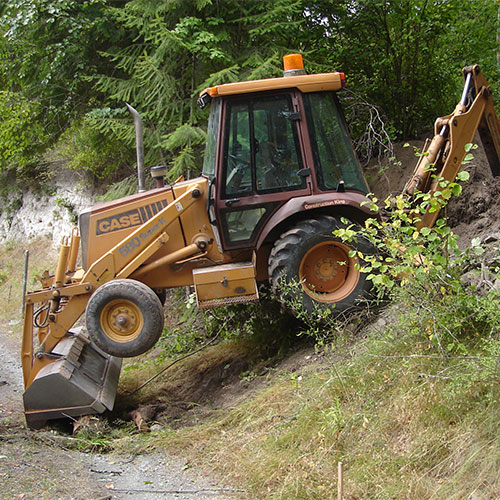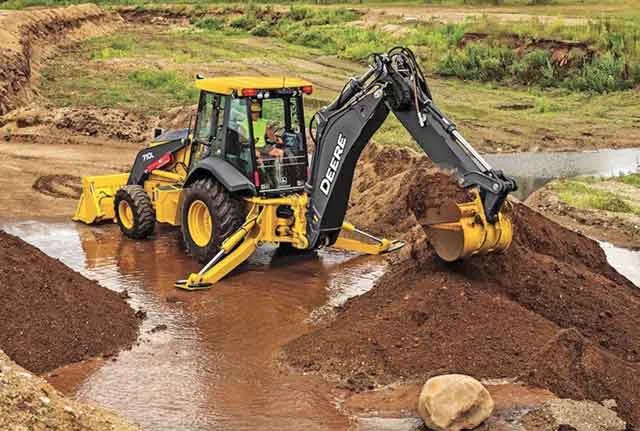Lancaster Excavation - Professional Excavation Services in Lancaster, OH
Lancaster Excavation - Professional Excavation Services in Lancaster, OH
Blog Article
Comprehensive Excavation Techniques: Mastering the Fundamentals for Success
In the world of building and civil engineering, the importance of efficient excavation techniques can not be overemphasized. The mindful preparation, precise execution, and meticulous focus to detail needed in excavation tasks require a thorough technique that encompasses different fundamental aspects. From preliminary dirt evaluation to the implementation of precaution and routine progression surveillance, mastering these core components is necessary for accomplishing success in any excavation undertaking. Nevertheless, the real mastery exists not just in comprehending these basics but in seamlessly integrating them to browse the complexities of excavation tasks with finesse.
Recognizing Excavation Job Preparation

The first phase of any type of excavation task is the planning stage, where vital choices are made that can significantly affect the outcome of the job. Understanding the job budget plan, scope, and timeline constraints is vital for developing an extensive excavation plan that makes sure the task's success.
One trick facet of excavation project preparation is the development of a thorough timeline that details the series of activities, milestones, and target dates. This timeline offers as a roadmap for the job team, enabling them to track progress and make necessary changes to ensure the task remains on timetable. In addition, a distinct spending plan that represents all costs, including tools rental, labor prices, and products, is crucial for staying clear of price overruns and hold-ups. By carefully considering all these variables during the drawing board, excavation tasks can be carried out effectively and efficiently, resulting in successful end results.
Dirt Analysis and Website Assessment
Carrying out extensive dirt evaluation and website examination is a critical step in the preparation stage of any type of excavation project. Soil analysis includes establishing the composition, framework, and homes of the dirt at the excavation website. This details is important for understanding the soil's bearing capacity, wetness material, and possibility for erosion, which are crucial consider determining the excavation methods and tools needed for the task.
Website evaluation surpasses dirt analysis and includes a more comprehensive analysis of the overall website conditions. This assessment includes identifying any type of possible hazards, such as underground energies, ecological problems, or unpredictable surface, that might affect the excavation procedure. By extensively examining the website, job managers can develop efficient excavation techniques that prioritize safety, performance, and ecological defense.
Utilizing sophisticated modern technologies like ground-penetrating radar, soil sampling, and drone studies can improve the accuracy and efficiency of soil analysis and site evaluation. Spending time and sources in these preliminary steps can ultimately conserve time and stop costly delays or complications throughout the excavation procedure.
Equipment Option and Usage
Effective excavation jobs rely greatly on tactical devices option and usage to ensure optimum efficiency and performance. Picking the ideal equipment for the work is critical in taking full advantage of efficiency and decreasing downtime. Elements such as the kind of dirt, depth of excavation, and job scope play a considerable role in identifying one of the most ideal tools for the task at hand.

In addition to selecting the suitable equipment, appropriate usage is crucial to job success. Operators has to be trained to manage the devices securely and effectively - lancaster trenching. web link Regular upkeep checks and timely repair services assist protect against failures and guarantee consistent performance throughout the task
Security Actions and Regulations Compliance
In the realm of excavation jobs, prioritizing precaution and conformity with guidelines is paramount to making certain a secure and legitimately audio operational setting. Precaution include a series of techniques, consisting of carrying out comprehensive website assessments, applying correct signage and barriers, and providing sufficient security training for all workers entailed in the excavation procedure. Adherence to policies, such as OSHA needs in the USA, guarantees that the excavation task satisfies the necessary standards to shield workers, onlookers, and the surrounding atmosphere.

Monitoring Development and Adjusting Techniques
How can predict supervisors effectively track the innovation of excavation jobs and adjust their techniques as necessary to enhance results? Tracking progression is essential for ensuring that excavation projects remain on track and satisfy target dates. Task supervisors can utilize numerous devices and techniques to track development, such as day-to-day report card, regular website examinations, and progressed monitoring innovations like drones and GPS tracking systems. By continuously monitoring the project's innovation, supervisors can identify any type of potential hold-ups or problems early and take positive steps to address them.

Conclusion
In verdict, understanding the principles of extensive excavation approaches is important for the success of any job. By comprehending job planning, examining soil and website conditions, selecting suitable devices, adhering to safety and security laws, and keeping track of development, job managers can make certain a smooth and reliable read review excavation process. Applying these approaches will certainly result in successful results and decrease possible risks or troubles throughout the excavation project.
The preliminary stage of any type of excavation project is the planning phase, where important choices are made that can dramatically influence the result of the job. Understanding the job timeline, extent, and budget restrictions is crucial for creating a comprehensive excavation strategy that makes certain the task's success.
How can project managers properly track the advancement of excavation tasks and adapt their approaches as necessary to optimize outcomes? By closely monitoring progress and being prepared to adapt methods, task supervisors can boost the general success of excavation jobs.
By recognizing task planning, examining soil and website problems, picking proper equipment, abiding with safety and security regulations, and keeping track of progress, project managers can make sure a smooth and reliable excavation procedure.
Report this page